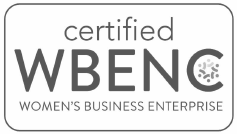As a J-school grad and former journalist, I am thrilled to see Spotlight take home the Oscar for Best Picture. While the internet and social media has made everyone an instant publisher – which brings some huge advantages along with some significant concerns – the crucial work that bonafide journalists do is irreplaceable.
A movie such as this reminds us of the essential role reporters and editors play in our society while educating our latest generation, who didn’t grow up with ink-stained fingers, why quality reporting by trained professionals is key to a free society.
Shining a Spotlight on Great Reporting
Examples of reporting that move us, inform us, educate us, protect us, delight us, amuse us, and provoke us can be found in newspapers and news stations across the country on a daily basis.
For a few stellar recent examples, we turn to the 2015 Pulitzer Prize winners:
The Post and Courier, Charleston, SC
“Till Death Do Us Part,” a riveting series that probed why South Carolina is among the deadliest states in the union for women and put the issue of what to do about it on the state’s agenda.
Eric Lipton of The New York Times
For reporting that showed how the influence of lobbyists can sway congressional leaders and state attorneys general, slanting justice toward the wealthy and connected.
Photography Staff of St. Louis Post-Dispatch
For powerful images of the despair and anger in Ferguson, MO, stunning photojournalism that served the community while informing the country.
I imagine 2016’s esteemed list might include stories from Flint Michigan’s water crisis/scandal and the Presidential election. In addition to these, numerous other topics require the investigative chops of professional storytellers. Think issues of terrorism, war, privacy, security, racism, sexism, poverty, hunger, natural disaster – who best can illuminate conflicts of interest, imbalances of power, scandals, and stories of people who live in the shadows?
Ethics in Reporting
I say it’s professional journalists. Not just because they have the training, but because they are governed by a set of standards that promote accuracy, balance and accountability. It’s called the Society of Professional Journalists Code of Ethics.
Its Preamble states: “Members of the Society of Professional Journalists believe that public enlightenment is the forerunner of justice and the foundation of democracy. Ethical journalism strives to ensure the free exchange of information that is accurate, fair and thorough. An ethical journalist acts with integrity.”
It then outlines four principles: 1) Seek Truth and Report It, 2) Minimize Harm, 3) Act Independently, and 4) Be Accountable and Transparent.
For those of us familiar with The Boston Globe’s reporting of the Catholic Church’s sex abuse scandal, these fine reporters certainly conducted themselves with the utmost integrity under the SPJ Code of Ethics.
If we were to rely solely on citizen journalism, how would we reveal such complex stories of abuse of power and cover up?
The State of Journalism Today
Sadly, journalism has been eroding for quite some time and our unofficial fourth estate is being compromised.
Declining readership, media conglomerates, blurred lines between advertising and editorial, the premium placed on ratings, limited resources for in-depth investigative reporting (like that of the Spotlight Team) and the mindset of an impatient society are all taking its toll on our society’s precious watchdogs.
Our blog typically ends asking that you download one of our marketing whitepapers, but today – in honor of Spotlight’s big win and in honor of our free press – we ask that you support quality reporting.
Here are a few ways to do so:
Subscribe to The Hartford Courant or The Journal News

